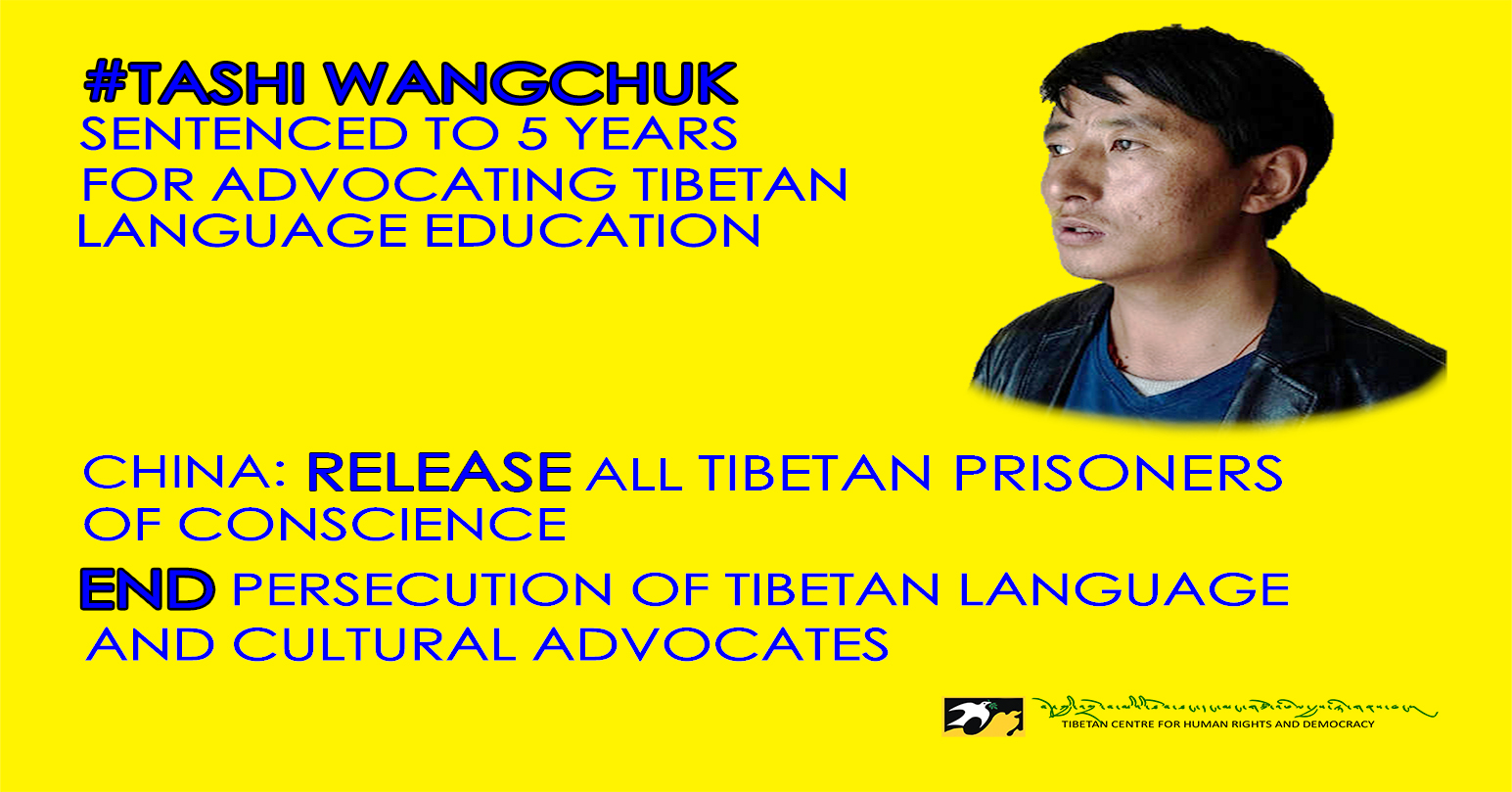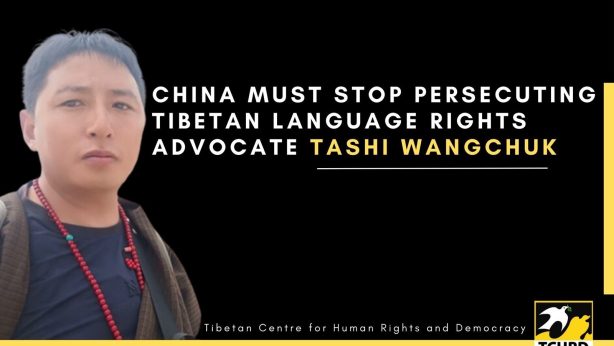Tashi Wangchuk’s sentencing exposes China’s assimilationist agenda to annihilate Tibetan cultural identity
 The Tibetan Centre for Human Rights and Democracy (TCHRD) condemns in the strongest terms the sentencing of Tibetan language advocate Tashi Wangchuk to five years imprisonment on the trumped-up charge of inciting separatism.
The Tibetan Centre for Human Rights and Democracy (TCHRD) condemns in the strongest terms the sentencing of Tibetan language advocate Tashi Wangchuk to five years imprisonment on the trumped-up charge of inciting separatism.
Tashi Wangchuk was arbitrarily detained on 27 January 2016 after a New York Times documentary reported on his efforts to file a lawsuit against local Chinese authorities for their failure to protect and promote Tibetan culture and language. He had been in arbitrary detention for almost two years when his trial, held in January this year, ended without a verdict.
Yesterday at 9.30 am local time, the Yushu Intermediate People’s Court announced the verdict. Tashi Wangchuk’s lawyer Liang Xiaojun posted the news of the sentencing on his microblog account, adding that he was unable to speak to the international media on the verdict in deference to instructions from Chinese Bureau of Justice and in light of the annual assessment of lawyer’s licenses that is underway in Beijing. He reiterated that from the legal point of view, Tashi Wangchuk was innocent and committed no crime.
The verdict against Tashi Wangchuk makes a mockery of Chinese Constitution and Regional National Autonomy Law both of which contain provisions for Tibetan nationalities to protect and promote their language. Other laws and regulations also provide Tibetans the choice to study in their own language. Despite these provisions, Chinese authorities have in recent years accelerated the use of Mandarin Chinese in government and education sectors of Tibet. The gaps between minority language policy and practice demonstrate that minority language rights become meaningless when they are seen as detrimental to ‘national stability’ and ‘national unity’.
With racial justifications at the foundation, Chinese authorities have long expanded efforts to ‘unify’ People’s Republic of China (PRC) with the so-called minority regions by imposing nationalistic ideas throughout the education system. One method of promoting nationalism is “reflected in the government’s renewed emphasis on standard Chinese as a common, national language and its decreasing attention to the development, or sometimes even the maintenance, of bilingual and other forms of education in minority languages”.
By imprisoning Tashi Wangchuk, the Chinese government has sent a worrying signal that it will continue to implement the counter-productive policy of discrimination and hostility against all expressions of Tibetan cultural identity. Equally concerning is the dominant view among the Chinese leadership that PRC’s stability and unity can only be achieved through the eventual annihilation of distinct national and cultural identities of Tibetans and other so-called minority nationalities.
TCHRD calls on the Chinese authorities to release Tashi Wangchuk and all other Tibetans imprisoned for protecting and promoting Tibetan language and culture. China’s assimilationist policy has increased alienation and sense of exclusion among Tibetans. It has become a major cause of instability and protests in Tibet. The 2008 and 2009 uprisings in Tibetan and Uyghur areas, followed by 2010 Tibetan students’ protests and numerous other protests including self-immolations have called for language freedom as one of their main demands.


